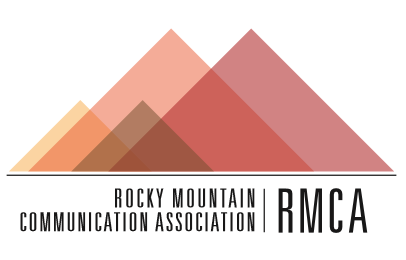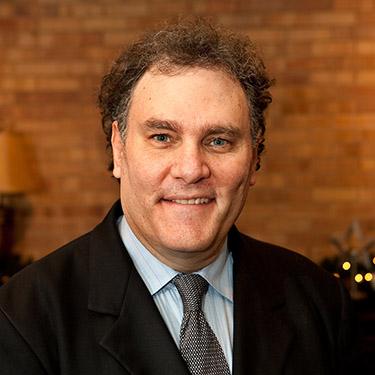The ordering below is from original program draft before COVID-19 cancelations began. Understandably, not all from the original program provided materials for the virtual conference. Hyperlinked prompts or titles below take you to item submitted.
ACTIVISM THROUGH
THE AGES

April 4, 2020
Activism Through the Ages
34th Rocky Mountain Communication Association Conference
Social change does not spontaneously happen. It takes the work of people resisting the status quo and advocating alongside those whose voices have been marginalized. Although we often think of this change as happening in large movements, it also occurs through everyday conversations. Activism is also a large part of the work of Communication scholars, but as scholars we also look at how social change is made, and the 2020 RMCA conference invites us to examine how activism has manifested over time, but in particular, today. What type of language is used, and has been used, to bring about social movements? How do we embrace activism at work, at school, and in our everyday lives?
Rocky Mountain Communication Association Leadership
President Stephen Collins, Pikes Peak Community College
Immediate-Past President Leah LeFebvre, University of Alabama
President-Elect/Program Planner Beth Bonnstetter, Adams State University
Executive Director Emily Stones, Regis University
Communications Thomas Endres, University of Northern Colorado
Board of Governors Liaison Sherry Dewald
Session 1
1.1 Activism and Women: Examining Activism through Sexuality, Motherhood, and Music
Paper Presentations
Chair: Emily Stones, Regis University
Motherhood Activism: Raising Awareness on Mental Illness Stigma
Sanae Elmoudden, St. John’s University
Hymens, Habits, and Hegemony: The Commodification of Women’s Sexuality and Spirituality
in Consolidating Cultural Conquest
Thecia Shubert, University of Colorado, Colorado Springs
The “Silver Springs Spell” Stevie Nicks’s Stylistic Icon Status
Olivia Lyda, University of Colorado, Boulder
1.2 The Impact of Technology on Communication
Panel Presentation
Technology is integrated in daily life and undoubtedly impacts human communication. Media is pervasive and we depend on it to survive as it creates and sustains our culture. This four-person panel comprised of University of Northern Colorado graduate students attempts to explore more specific scenarios illustrating the cultural evolution of technology while defining its unique qualities. We will discuss how bot accounts on social media are influencing public opinion, the implications of Artificial Intelligence and Machine Learning in the context of gender, approaching the digital divide within secondary schools and how technology use relates to feelings of anxiety. Join us while we explore these genres through riveting questions and research and open the door to conversation and thought.
Foreign Influence via Social Media
Noah Christensen, University of Northern Colorado
Men, Women and A.I.—OH MY
Lisa Ellert, University of Northern Colorado
Components of the Digital Divide in Education and How to Overcome These Downfalls:
Proximity is Not Access
Micayla Lander, University of Northern Colorado
Anxiety Patters Stemming from Technology Use
Amanda Meister, University of Northern Colorado
Social Media Influencers
Ali Meyer, University of Northern Colorado
1.3 Using Emotional Intelligence to Promote Personal Change and Advocate for Empathy in the Workplace
Panel Presentation
Emotional intelligence can be a powerful tool for promoting changes in the workplace especially when the workplace today is often surrounded by differences or conflicting ideas because of generational differences. Individuals who are not in a position of power often find themselves at a disadvantage when they cannot express or communicate their argument coherently and cohesively. The millennials, for example, have to learn to embrace the current workplace thinking or risk losing their jobs for failure to get along with managers who have been in their position for a long time. Being in-tune with each other’s emotions could help promote a positive working environment and create an atmosphere of empathy for those who are not always in tune with the status quo. Using emotional intelligence in our everyday practice could be a vehicle for advocating change in terms of how we approach people’s personal situations and make decisions.
Panelists: Teresa Lao, Colorado State University Global
Eva Fisher, Colorado State University Global
Session 2
2.1 The World in Which We Live: Self-Care for Alzheimer’s and Dementia Caregivers, Athlete Activism, Politics of Public Memory
Paper Presentations
Chair: Beth Bonnstetter, Adams State University
Online Self-Care Advice for Caregivers of People with Alzheimer’s and Dementia
Olivia Jones, Colorado State University
The Liminality of Athlete Activists: Constrained Agency Within the Racial Profiling
of Michael Bennett
Kennedy Schade, Colorado State University
Rhetorical Analysis of a Memorial: The Massacre at the Virginia Polytechnic Institute
and State University
Brooke Crochet and Sydney Monahan, Regis University
2.2 Active Engagement in Peer Tutoring: A Data Session
Please join the panelists for a Zoom session at 1:00 pm MDT on April 4, 2020. Email
Heidi Muller at heidi.muller@unco.edu for a link!
Panel Presentation
In this version of an oft-occurring RMCA session, the scholarship of discourse analysis is enacted. The data session, where participants watch/listen to real world recorded data while closely reading transcripts, is a key community component of this empirical research. What is taking place in the interaction? Session participants propose answers that are grounded in the data. The session is an open conversation punctuated by revisiting the recordings. The data is played, the panelists share initial observations, and the floor is opened to all participants. The data in this year’s session is from peer-tutoring sessions in which the tutor is working with a student whose struggles are beyond the norm per the rest of the interaction in this data set. What active engagement strategies are visible in the data as the tutor has to talk in ways that are not utilized in other tutoring sessions?
Chair: Heidi Muller, University of Northern Colorado
Panelists: Lisa Ellert, University of Northern Colorado
Micayla Lander, University of Northern Colorado
Amanda Meister, University of Northern Colorado
Ali Meyer, University of Northern Colorado
Hidaya Saada, University of Northern Colorado
2.3 Self-Disclosure About Mental Health Issues: Storytelling as a Form of Advocacy
Panel Presentation
Storytelling is a powerful tool for advocating change in society. One issue that needs attention today is self-disclosure about mental health issues. The social stigma related to having a mental health disorder can impede individuals from disclosing their concerns to family members and friends. Individuals often advocate for themselves by seeking social support on online forums that offer anonymity and the ability to share their concerns with others who can understand. Telling one’s personal story online can be considered a form of advocacy since doing so enables individuals to feel less alone and makes their mental health struggles public. One of the panelists has shared her struggles with a mental health disorder online to offer hope that recovery is possible. The objectives of this presentation are to: 1) provide insights into the types of personal disclosures that individuals share on an online support forum for body dysmorphic disorder (BDD), 2) understand the types of support that individuals seek and share on the forum, and 3) to explore how posting one’s story about recovery can serve to reduce the stigma related to having a mental health disorder both personally and professionally.
Panelists: Eva Fisher, Colorado State University Global
Teresa Lao, Colorado State University Global
Keynote
Dr. Lawrence Frey, University of Colorado, Boulder
(Bio from University of Colorado website)
Lawrence R. (Larry) Frey is a professor and associate chair of graduate studies in the Department of Communication. His teaching and research focus on applied communication, group communication and communication research methods (both quantitative and qualitative).
Frey’s research seeks to understand how participation in collective communicative practices (especially by those who are underresourced and marginalized) makes a difference in people’s individual and collective lives; and promote communication activism for social justice scholarship. He is the author/editor of 17 books and more than 110 other publications.
He has received many research, teaching and service awards, including the National Communication Association’s Gerald M. Phillips Award for Distinguished Lifetime Applied Communication Scholarship and NCA’s Group Communication Division’s Career Achievement Award. He is a past president of the Central States Communication Association and received that organization’s Outstanding Young Teacher Award, as well as the Master Teacher Award from the Western States Communication Association.

We look forward to hosting Dr. Frey next year at RMCA 2021 to discuss his work on activism.
Session 3
3.1 Top Papers
Paper Presentations
Chair: Stephen Collins, Pikes Peak Community College
Vivacious Acts of Passion: Evaluating George Campbell’s Theory of Emotional Appeals
in Philosophy of Rhetoric
Jesús Calderón, Colorado State University
Ubuntu at Home and Abroad: A Practical Analysis of Cross-Cultural Hospitality
Micaela Burrow, Colorado Christian University
NGO Activism in Transforming the Rhetoric Surrounding Sexual Assault in India
Deepti Khedekar, University of Colorado, Boulder
Active Engagement as a Cancer Patient IHeidi Muller, University of Northern Colorado
LISTEN to an audio presentation of the RMCA 2020 awards. (If audio link doesn't work, email Beth Bonnstetter for the MP3 file.)
Go to this page to SEE the awards.
Session 4
4.1 Telling Marginalized Stories Through Research Activism: An Interdisciplinary Exploration of Our Academic Responsibilities
Panel Presentation
The term “research activism” refers to the work that we, as scholars and academics, can do to challenge traditional narratives, tell more inclusive and diverse stories, and support marginalized people. We will be discussing our responsibility, as interdisciplinary academics who represent the disciplines of History, Communication, Geography and Environmental Studies, and Genealogy, to embrace these principles. We will explore the role of language in marginalizing people and how we challenge the accepted terminology of our disciplines, government, and media. Each of the presenters will also share their own work as research activists and explain how they personally have applied these principles to the study of a wide range of topics.
Panelists: Aaron Wilson, University of Colorado, Colorado Springs
Kristy Wilson, University of Colorado, Colorado Springs
Thecia Shubert, University of Colorado, Colorado Springs
4.2 The Activism of Music in Multiple Genres
Panel Presentation
This panel intends to look at different genres of music to determine their impact on activism through traditional or non-traditional forms of musical expression. The impact of race and gender and orientation on music sometimes happened in expected and unexpected ways and the consumption of these music forms transformed social movements and the way we understand our world and our culture and our civil rights in this nation.
Activism Through Country Music
Heidi Guggisberg-Coners, Colorado Community College System
Rock and Rock Rebellion in Sex and Gender Activism
Dina Hornreich, Red Rocks Community College
The Musical Activism Nexus Between the Labor and Civil Rights Movements
Stephen Collins, Pikes Peak Community College
Index
(Names in bold have provided virtual materials. Names in italics contribued to the live Zoom panel.)
Bonnstetter, Beth 2.1
Burrow, Micaela 3.1
Calderón, Jesús 3.1
Christensen, Noah 1.2
Collins, Stephen 3.1, 4.2
Crochet, Brooke 2.1
Ellert, Lisa 1.2, 2.2
Elmoudden, Sanae 1.1
Fisher, Eva 1.3, 2.3
Guggisberg, Coners, Heidi 4.2
Hornreich, Dina 4.2
Jones, Olivia 2.1
Khedekar, Deepti 3.1
Lander, Micayla 1,2, 2.2
Lao, Teresa 1.3, 2.3
Lyda, Olivia 1.1
Meister, Amanda 1.2, 2.2
Meyer, Ali 1.2, 2.2
Monahan, Sydney 2.1
Muller, Heidi 2.2, 3.1
Saada, Hidaya 2.2
Schade, Kennedy 2.1
Shubert, Thecia 1.1, 4.1
Stones, Emily 1.1
Wilson, Aaron 4.1
Wilson, Kristy 4.1
Please join us next year for RMCA 2021! If you are interested in being part of RMCA Leadership, please contact Emily Stones, Executive Director, at: estones@regis.edu

